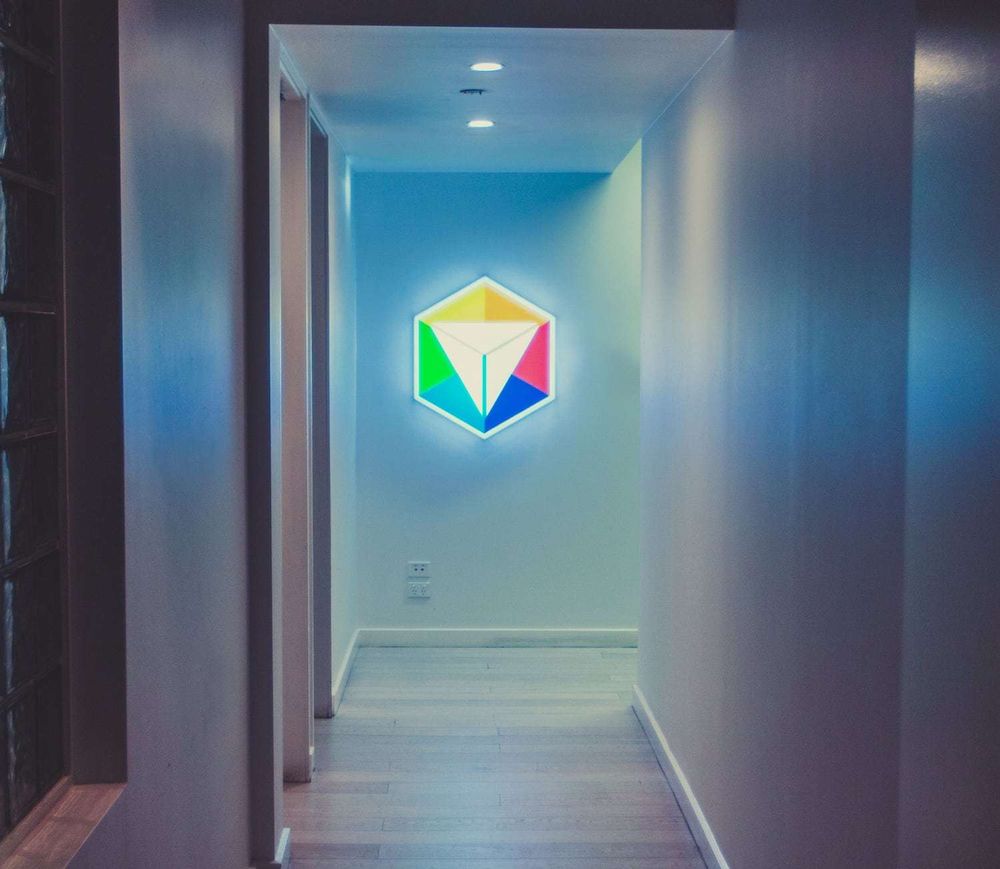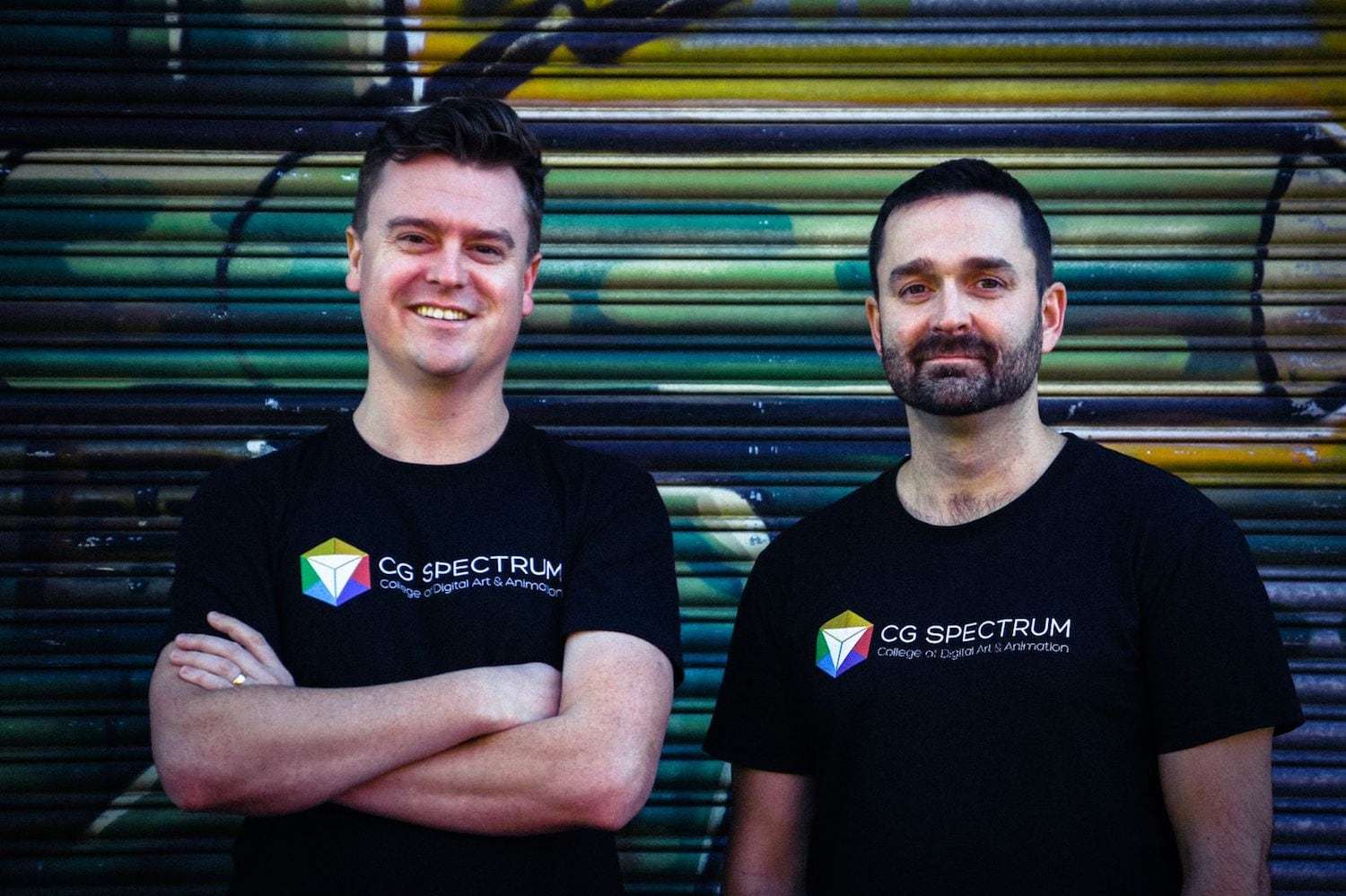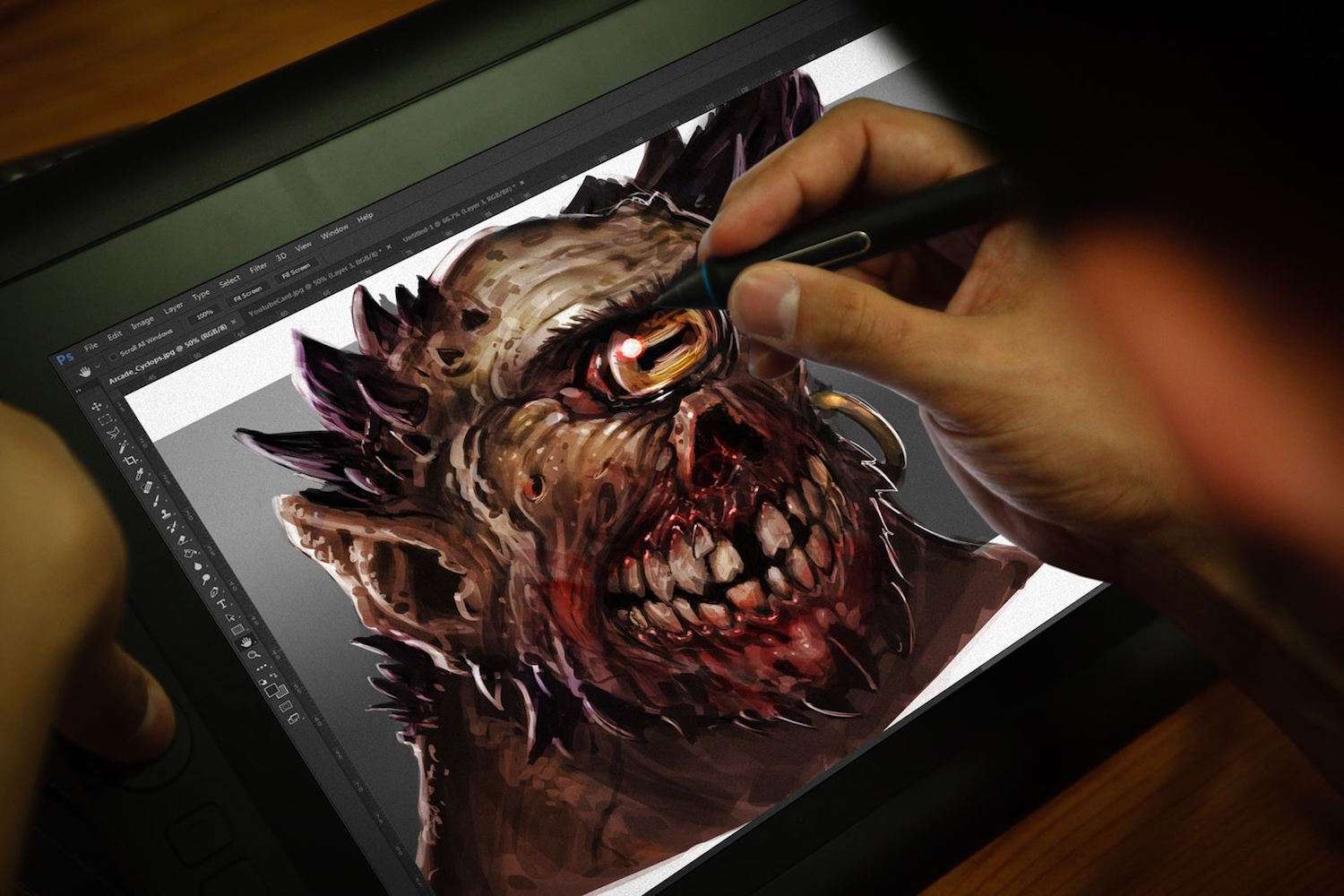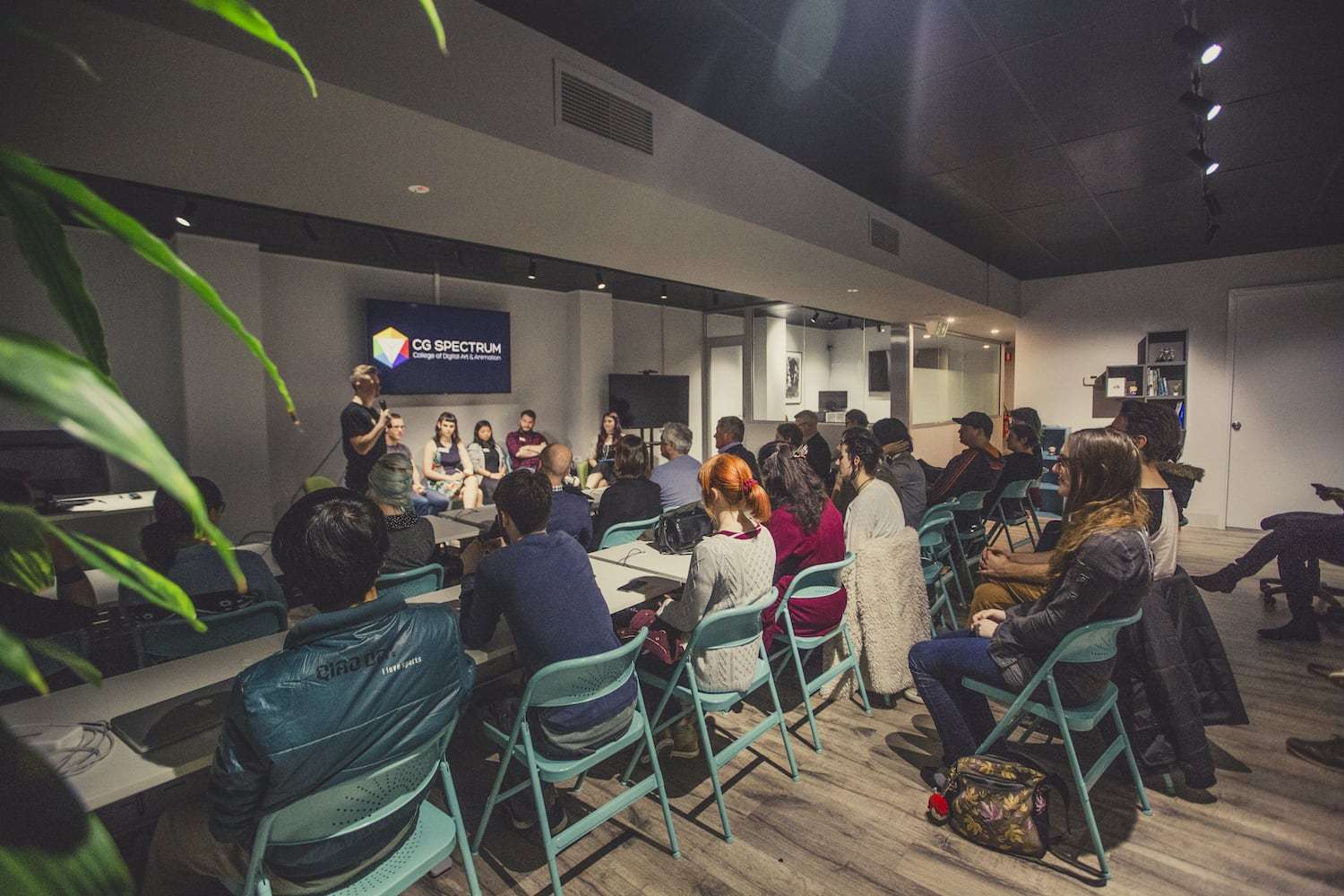
The landscape of online learning is changing and the team at CG Spectrum are laying down new tracks. Find out how CG Spectrum are raising the bar in delivering quality, hands-on education.
Who are you and what do you do at CG Spectrum?
My name is Nick Fredin and I am a co-founder of CG Spectrum. My background is in feature film animation with over 12 years of experience on films such as The Hobbit franchise, Ironman 3, Rise of the Planet of the Apes and the Oscar award winning animated film Rango.
At CG Spectrum I mainly manage curriculum and content development to make sure our VFX and Game Design courses are meeting the industry demand for specialised training in order for our students to get industry placement after graduation.
What is your mission statement?
CG Spectrum was founded on the principle that students learn best through personalised, hands-on education taught by industry professionals who specialise in the discipline they are teaching. By giving students access to the most talented artists in the industry as their mentors, this helps ensure that CG Spectrum students are the best connected, best trained and best prepared for life beyond school in their respective fields.
CG Spectrum mentors spend a majority of their time working within the student files to show them how they would approach their work as a professional
How is the online school organised? The basic structure?
We have formed a team of industry leaders from major studios such as Disney, PIXAR, Weta, ILM, Ubisoft, EA and many other leading studios to provide personalised education to those serious about learning the skills required to break into the film and games industry. Our mentors meet students from around the world online for small classes or 1-on-1 specialised industry diploma courses. This personalised education gives our students an advantage, by allowing them to network with artists of major studios, regardless of their geographic location. In addition to the unique 1-on-1 approach to training. This allows students to quickly adopt professional workflow and reach a higher standard at a faster rate.
Collaborative classrooms – how do you achieve this online? How do you promote best working practices and studio life?
Online learning sometimes gets a bad wrap in terms of interaction and collaboration. If delivered poorly online education can be frustrating and students can feel isolated. If it’s delivered properly and with passion we find that online learning can not only be collaborative and engaging but even more beneficial than attending a bricks and mortar school – after all, we’re not limited to only hiring teachers out of locally available talent, we can take our pick of the best mentors worldwide. We have had quite a number of students who have attended various other schools whether it’s online or physical and they’ve been blown away with how much and how quickly they have learned.
At the end of the day if students are committed and passionate they will get an education with CG Spectrum that is second to none
CG Spectrum is currently working on a big collaborative project called Utopia. It’s a short film shot and directed by an award winning crew using feature film quality equipment and cameras. The short film has over 180 VFX shots that all students at CG Spectrum have the chance to participate in. Students are getting real world production experience on a high quality short film that mimics an actual studio pipeline except we are doing it all online!
What have been the successes and challenges of working this way?
As mentioned, the short film is being worked on by our students who are all around the globe. This can be a tricky scenario to organise and it’s imperative that the delivery of assets and shots is tightly controlled and organised. Having mentors who are currently VFX Supervisors at studios around the world ensures that students are not only learning the artistic side of visual effects but also how to manage themselves as an artist preparing to enter the workforce.
We also run monthly workshops for all disciplines which are completely free to existing students
In terms of the classes and the online learning model we find that the calibre of students who are prepared to undertake online learning is extremely high. These students want to learn from the best and understand that they are in control of their education experience just as much as we are as teachers. Learning online also pushes students further in terms of work ethic – they have to be disciplined and self-motivated in managing their schedules. Online learning shouldn’t be thought of as an secondary alternative to going to a physical school and I believe that the paradigm is shifting in terms of how people perceive it. At the end of the day if students are committed and passionate they will get an education with CG Spectrum that is second to none.
How do instructors work together to compliment other subjects than the one they lecture?
Our instructors draw from other departments, however, we are a specialist school so a student’s main focus is a learning specific skill. A mentor may use assets created for another course so that the student does not have to create materials, rather focus on the craft they have chosen. For example, someone learning FX could use assets and animation created by the other departments, so that they can spend their time refining their fx skills as opposed to mastering modeling and animation at the same time which would dilute the outcome of their portfolio.
We also run monthly workshops for all disciplines which are completely free to existing students. For instance, students who are studying FX may be curious about game programming, and can learn to program a simple space sim in our beginner game design workshops. As a specialist school, it’s an easy way to enable students to explore other disciplines and interact with mentors from other streams.
How do you cater for students who aren’t sure about where they are going? And, for those that do know what they want?
For those students who aren’t exactly sure where they are going, we offer a Foundations of Film and Game Design Diploma. This diploma covers the pipeline and basic skills to understand how the film and games industry works as well as basic skills of multiple disciplines. Those students who know what they want to do and have the basic skills equivalent to our Foundations diploma can jump into our Advanced Diplomas. Our specialist diplomas allow the student to focus on learning the skills required of a specific position in the industry. This optimizes the student’s learning trajectory as they are laser focused on creating a portfolio with a specific skill as opposed to becoming a master of none or spending more time on theory instead of practice and skill development. Ultimately, studios are much more interested in hiring specialists than generalists, and we design our pathways with that in mind.
We create our curriculum working backwards from the needs of the industry
How do students work up to creating their reel – what’s the process?
We create our curriculum working backwards from the needs of the industry and what it would take for someone to be at an entry level position at a major studio. The students build strong foundations from the beginning, working up to more advanced techniques throughout the course. When they are in the final study period, they are working on portfolio pieces with the aim of creating work that looks like it belongs in a feature film or game. The students treat their mentor like a supervisor and must submit to frequent deadlines and apply revision notes as if they are already in a studio environment. Many studios have commented that CG Spectrum grads are in a league of their own and are able to hit the ground running from day one.
How does CG Spectrum work with the Rookies to ensure students are getting the best chance at succeeding?
The Rookies and CG Spectrum have developed a scholarship program that takes artists with great potential and pairs them with leading artists of major studios to learn from, much like the master and apprentice system of the great painters.
If you are interested in applying for a scholarship with CG Spectrum check out this link.
Where do you see CG Spectrum going in the next 3-5 years? Any new initiatives?
In the next 3-5 years we are aiming to expand internationally, connecting students to learn from industry supervisors across the globe. We are currently expanding our short course offerings and constantly developing new courses as we consult with major studios and anticipate the future landscape of VFX and Game Design. We also have some collaborative projects in the works, so stay tuned!





